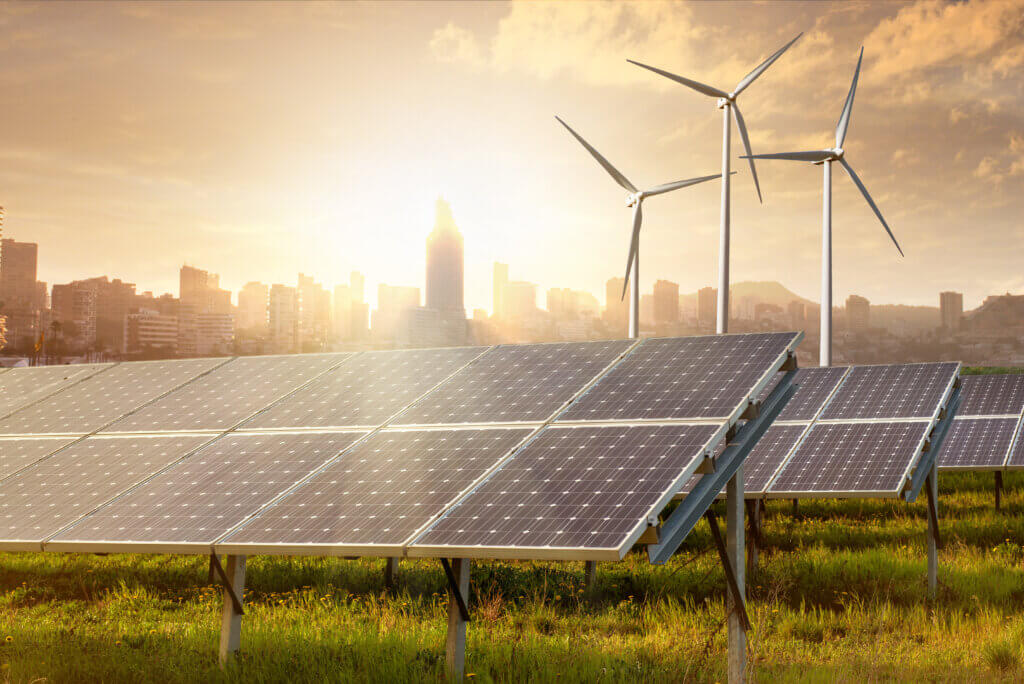Sino-German Energy Partnership Pilots Integrated Energy Planning in China
In September 2020, Chinese President Xi Jinping announced the goal to peak carbon dioxide emissions before 2030 and achieve carbon neutrality by 2060. Thus, China joins a growing rank of countries committed to ambitious greenhouse gas reduction targets by midcentury. Earlier in 2020, Ursula von der Leyen, President of the European Commission, pledged to make Europe “the world’s first climate neutral continent by 2050.” The European Union, and Germany, will for the first time enshrine the goal of climate neutrality into law.
Accounting for more than 70 percent of global emissions, cities and urban areas must act on the frontier of climate protection. Making cities ready for climate neutrality depends on exploiting energy efficiency potentials and the integrated utilization of resources, innovative urban concepts, and applying new (building) technologies, financing, and business models. This
holds especially true for industrial areas. These are drivers of economic growth but also come with negative impacts, such as greenhouse gas (GHG) emissions, pollution, and resource depletion. However, achieving climate neutrality cannot depend on a single nation, city, or industry park. International cooperation – discussing and exchanging ideas, best practices and lessons-learned beyond borders – is key for winning the struggle against global warming. Hence, Germany and China have set up a new demonstration project to pilot the development and implementation of an integrated energy concept in a Chinese city quarter or industry park and strengthen both sides’ private sector cooperation. The demonstration project is part of the Sino-German Energy Partnership between the German Federal Ministry for Economic Affairs and Energy (BMWi) and the National Development and Reform Commission of China (NDRC).
Integrated energy concepts have become a major pillar of local energy policy in Germany
German municipalities possess rich experiences with developing integrated climate protection and energy concepts. Since 2008, more than 2200 municipalities have developed energy concepts under the German National Climate Initiative (NKI). The NKI is a federal program under the Ministry for the Environment (BMU) that extends funding to municipalities for developing integrated energy and climate concepts and measures for implementing them, as well as hiring climate protection managers who support these processes professionally. From large urban areas to small municipalities and villages, from Berlin to Freiburg, integrated energy concepts have become a major pillar of local energy and climate protection policy. Energy concepts analyze the existing energy supply and demand structure across all sectors – power, heating, industry, buildings, and mobility –, and their projected future development. They investigate options for saving energy through energy efficiency measures, and study the potentials of deploying renewable energies within the municipality. Finally, energy concepts provide local decision makers with a toolbox of measures to reach a given political target, e.g., decarbonization by 2040. Suggested measures often include technical decarbonization options, such as deploying rooftop PV installations or the energy-efficient refurbishment
of buildings, but also awareness-raising campaigns for resource saving in households, measures for stakeholder consultation and strengthening public acceptance, energy consulting for enterprises, or subsidy schemes for public transport.
In fact, energy-efficient buildings are the foundation of a sustainable energy system and thus of crucial importance for the success of the energy transition. Lower (building) energy demand reduces resource-intensive, and potentially pollutive, energy generation. Thus, setting ambitious standards for the energy efficiency of buildings is also important in the context of district development. Several specific building standards as well as corresponding funding measures exist internationally and in Germany. However, energy demand and emission requirements should not only be geared towards individual consumption units, but focus on strengthening integrated supply solutions and district concepts, thus providing a holistic picture of energy flows across buildings and structures in an area. The energy balance of a building is made up of transmission heat losses (i.e., heat losses via the building façade), ventilation heat losses (i.e., heat losses through air exchange), solar gains and internal heat gains (e.g. waste heat from electrical appliances or people themselves). Alongside a climate-neutral energy supply, these factors represent the key drivers of a sustainable district energy concept.
Demonstration project provides solutions for local climate protection and strengthens private sector cooperation
Against this background, Deutsche Gesellschaft für Internationale Zusammenarbeit (GIZ) implements the demonstration project on energy saving in industry parks jointly with the Deutsche Energie-Agentur (German Energy Agency; dena) and the China Energy Conservation and Environmental Protection Group (CECEP Consulting). The overall aim of the project is to contribute to municipal climate protection by developing and implementing an integrated concept for the efficient and sustainable energy system of a city quarter or an industrial park and to identify existing – and economically interesting – energy saving and GHG emission reduction potentials. Furthermore, the project aims at improving the market conditions for energy efficiency technologies and services for the realization of sustainable local energy systems, strengthening the private sector cooperation between Germany and China, and involving German companies in the implementation of energy efficiency measures in China. Both German and Chinese stakeholders from local authorities, industry and academia are invited to participate in the project.
A contribution article by Maximilian Ryssel, Deutsche Gesellschaft für Internationale Zusammenarbeit (GIZ) and Susanne Schmelcher, German
Energy Agency (dena) for econet monitor special issue on green building by AHK Beijing.



